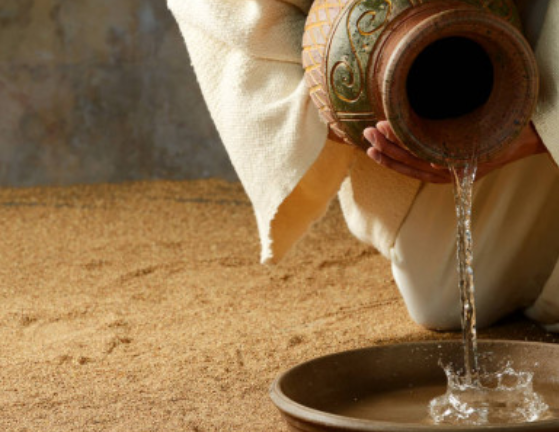TWENTY-NINTH SUNDAY IN ORDINARY TIME, YR B
Is 53:10-11; Ps 33
Heb. 4:14-16; Mk 10:35:45
CALLED TO SERVICE NOT HONOUR
The disciples still do not seem to understand what it means to be a disciple of Jesus. They are still looking out for themselves as Jesus talks about his death. They are behaving like those relatives or children who think more of their parents’ properties while they are alive than how to care for them in their old age or sickness.
In our gospel today, Mark 10:35-45, two of Jesus’ disciples came to him to ask that they wanted to sit at his right and left in his kingdom. Jesus takes the opportunity to teach again about what it means to be great in the kingdom. We must never forget that Jesus did not call us to greatness but to service.
Jesus called all the disciples together and admonished them. The request of this two was insensitive and offensive to the others. However, we can agree that the way the others reacted somehow points to the fact that they too had some ambitions.
From the last couple of weeks, we have read about the things that can become obstacles to our faith and our response to the call of Jesus;
Wealth
Honour
Power
Pleasure
Today, Jesus calls the attention of his disciples to be careful about these obstacles and not behave like the people of the world. He told them, “It shall not be so among you”. A closer look at the Greek text puts this statement in the present and not the future. It can better be rendered, “it is not so among you”. This admonition of Jesus describes the present and existing behaviour and ethics of the Kingdom of God and his disciples. This attitude is not an aspiration to be attained but an abiding character of the people of God, the church. It is the way a community would be identified as the disciples of Jesus.
For Jesus, we are called to be servants and slaves.
A servant is one who performs duties for others. To be a servant is to use the resources available to us to help others who are less privileged. Unlike the people of the world who desire wealth, honour, power and pleasure as ends in themselves or use it to suppress others, the Christian must see these as an opportunity rather to serve the poor in our society. Pope Francis observed that, “there is so much indifference in the face of suffering. May we overcome indifference with concrete acts of charity”. Do you have any money? Do you have some influence or power in your community? Are you able to afford what makes you happy? How can you use these to benefit another person also?
A slave is the last and the least. He is the legal property of another. He does not have a will of his own except that of the master. All of his labours are for his master. When Jesus calls us to be slaves, he calls us to total submission to his will and to the mission of the church. We must all become slaves to the mission of the church in the world. Paul understood this better. He says in his opening sentences to the Romans, “Paul a slave of Christ…”(Rom 1:1).
All of us have been called to the service of the world and the Church. No single person therefore is bigger than the church or owns her. We are all part of her. Whether clergy or lay, we are all called to service. In this we must be careful so we do not become merely philanthropists, for “the greatest act of charity is to announce the gospel”- Pope Benendict XVI.
This act of service in charity and commitment to mission is found in Jesus’ own teaching of love of neighbour and his self-giving sacrifice on the cross. By his teachings and his life, he has given us the most credible and compelling example for all of us to follow.
The finest virtue of the Kingdom of God and the Church is not wealth, power, honour and pleasure but service. “The happiest people are not always the most successful people, but they are the ones who serve the best”.
May the Lord bless us and may he grant us the grace of service.
God bless you.
BY Rev. Fr. Delight Arnold Carbonu




